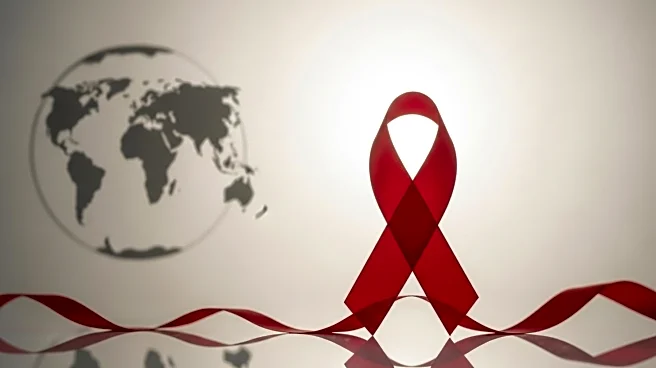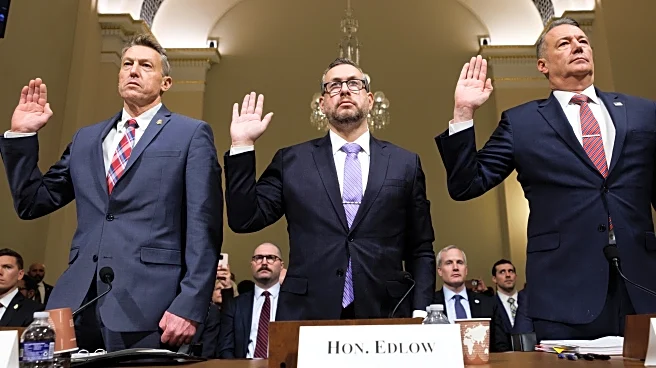What's Happening?
The Trump administration has suspended funding for the U.S. President’s Emergency Plan for AIDS Relief (PEPFAR), a program credited with saving millions of lives globally. The cuts have led to disruptions in HIV/AIDS relief efforts, including medicine stockouts, staffing cuts at clinics, and suspended community outreach services. The full extent of the budget cuts remains unclear as Congress battles the White House over proposed budget clawbacks. PEPFAR, established in 2003, has been instrumental in providing life-saving HIV medicines and supporting healthcare systems in over 50 countries. Despite a waiver to exempt life-saving services from a foreign aid freeze, nonprofits report that many projects have been terminated, affecting patients' medical care across Africa, Asia, and Latin America.
Why It's Important?
The suspension of PEPFAR funding poses a significant threat to global health efforts, particularly in regions heavily reliant on U.S. support for HIV/AIDS treatment and prevention. The cuts could lead to increased mortality rates, the emergence of drug-resistant HIV strains, and setbacks in the fight against the disease. The situation highlights the broader implications of U.S. foreign aid policies on global health and development. The lack of transparency and clarity regarding the program's ongoing activities raises concerns about accountability and the effectiveness of U.S. aid operations.
What's Next?
The ongoing budget battle between Congress and the White House could determine the future of PEPFAR funding. Lawmakers and advocacy groups are likely to push for the release of withheld funds and greater transparency in aid operations. The State Department's recent commitment to distribute a new HIV prevention drug in high-burden countries may offer some relief, but the overall impact of the funding cuts remains uncertain. The situation underscores the need for a comprehensive review of U.S. foreign aid policies and their alignment with global health priorities.











